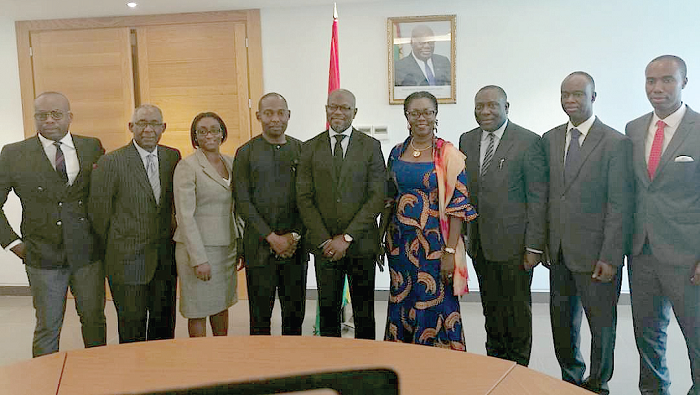
Comm. Minister urges more transparency in NCA operations
The Minister of Communications, Mrs Ursula Owusu-Ekuful, has called for more openness and transparency in the operations of the National Communications Authority (NCA) in order to gain the confidence of the public in the discharge of its duties.
“Issues of quality of communication services in the country have lately come into question, attracting severe criticisms from the public at large,” she said, adding that: “This is not tolerable considering the government’s investment in nationwide broadband infrastructure.”
The minister made the call when she inaugurated an eight-member board of the NCA in Accra on July 6.
The call comes at a time when public outcry over the quality of service received from the telcos has increased in recent times.
Call drops, delays in call set-up time, poor reception and numerous complains about call credit vanishing from phones are some of the few complains made on a daily basis by subscribers. Unfortunately, their complains are not being addressed, leaving them at the mercy of the telcos.
“The NCA exists as the national regulatory authority for electronic communications and management of spectrum in addition to other telecommunications-related matters; I entreat you to work with all stakeholders to ensure the harmonious implementation of the national communications policy for the continuing development of ICT infrastructure and services for public interest and in the spirit of public-private partnership,” the minister advised.
She said the players in the industry could cut costs by co-sharing to enable them to provide the kind of services the public deserved.
Mrs Owusu-Ekuful said the NCA had recently extended its operations and influence in the regions and “it is my expectation that the authority will collaborate with the sector agencies in the regions such as NITA and GIFEC to support the government’s ICT development programmes”.
Sanctions for radio stations
Meanwhile, Mrs Owusu-Ekuful said more than 140 radio stations out of the 354 in operation throughout the country faced severe sanctions for various infractions of the Electronic Communications Act, 2008 (Act 775).
The stations, most of which are bigwigs within the industry, have been notified by the NCA to fully comply with their licence regulations within 30 days or face the full sanction as specified in the Act.
Mrs Owusu-Ekuful indicated that the stations affected had been duly notified of their infractions in line with the procedures spelt out in the Act.
She said the stations did not take advantage of the 30-day notice period to make good their infractions “and I believe the law indicates that once the authority takes a decision, it gives them 30 days’ notice of its intention to sanction them”.
Mrs Owusu-Ekuful said: “The infractions were noticed after an audit conducted into the state of authorisations in this area.”
Sanctions
The sanctions to be meted out to them will include revocation of licences, penalty fines, suspension of service over a period, seizure and confiscation of equipment or a term in prison.
Board members
The eight-member board is chaired by Mr Kweku Sakyi-Addo, a broadcaster and former Chief Executive Officer (CEO) of the Chamber of Telecommunications.
The members include Mr Joseph Anokye, the Director-General of the NCA; Mr Bernard Aidoo Forson; Mr Philip Asare Kwame Ayensu; Mrs Susan-Barbara Adjorkor Boye Kumapley; Mr Paul Adom-Otchere and Mr David Gyewu.
The communications minister urged the members of the board to fully collaborate with the ministry and its sector agencies to enable them to discharge their duties to benefit the entire industry.
“There are calls for a review of certain aspects of our national telecommunications policies with regard to the implementation of the outcome of the World Conference of International Telecommunications Regulations (WCIT-2012) vis-a-vis Ghana’s WTOs commitments,” she said.
Mrs Owusu-Ekuful said: “It is my expectation that the NCA will conduct a thorough examination of the subject and the implications on our national development for the consideration of the government.”
Mr Sakyi-Addo, for his part, thanked the President, Nana Addo Dankwa Akufo-Addo, for the confidence reposed in him and the other members of the board and pledged their commitment to discharge their duties without fear or favour to take the industry to greater heights.
Obligations
According to the minister, some of the obligations regarding frequency authorisation were that: “A holder of a frequency authorisation shall pay the fees specified by the authority; strictly adhere to the authorised frequency band; not assign the frequency authorisation without the written approval of the Authority; on a request made by the President and subject to the Constitution co-operate with the government in matters of national security, and observe the Regulations made under this Act and the conditions of the authorisation.”
She said the radio stations seem to have gone against most of the licence regulations, including operating beyond a specified kilometre radius.
For instance, most of those operating in Accra can be heard in other regions, a practice which is against the licence regulations.